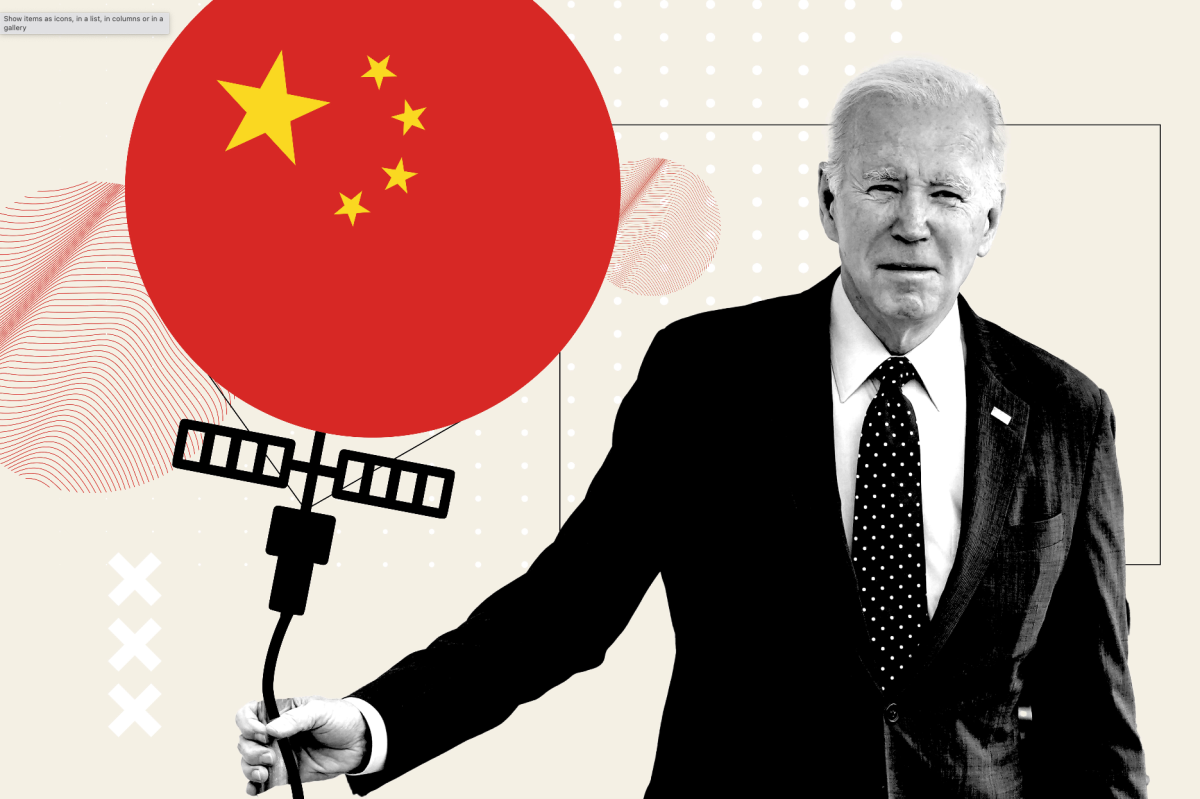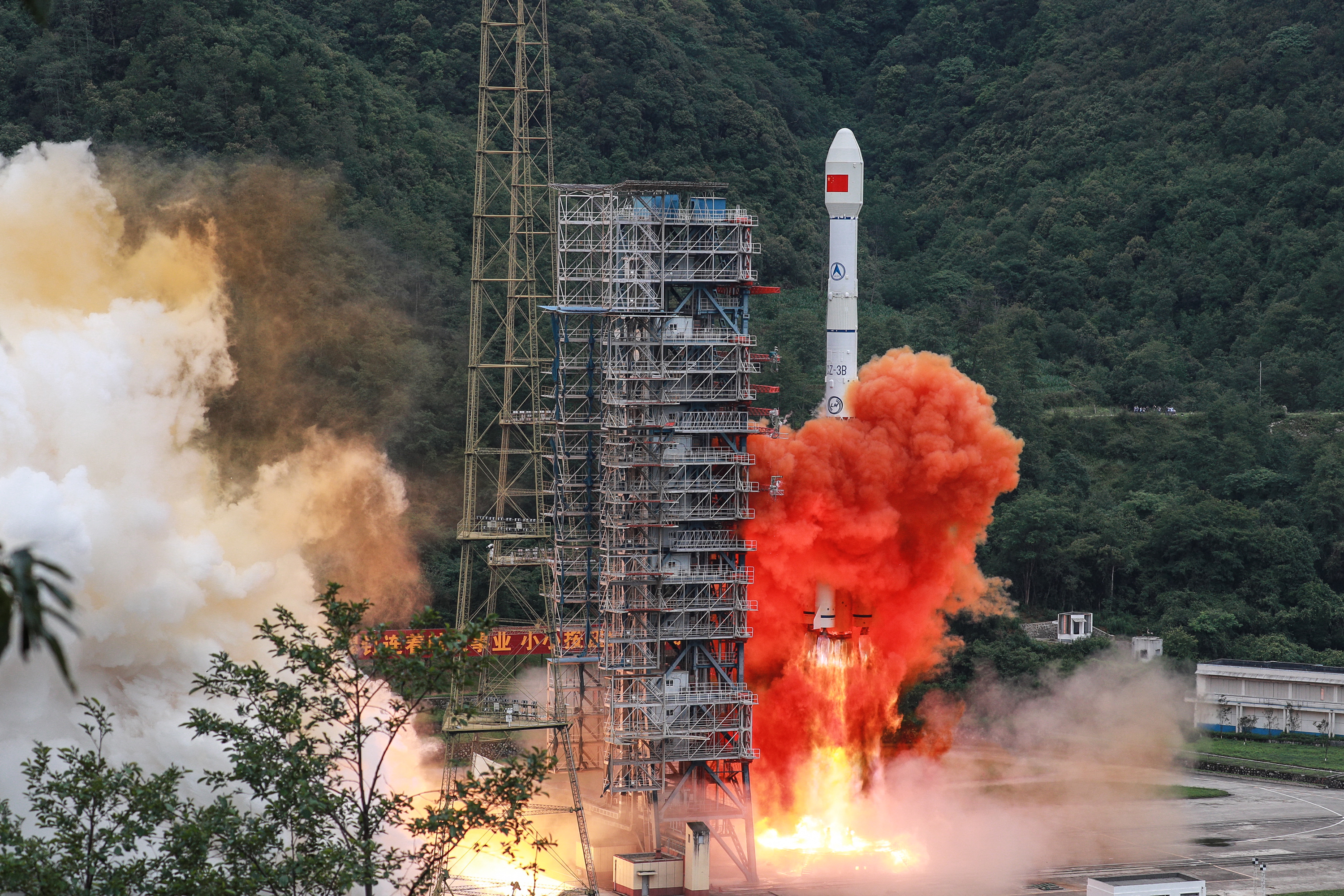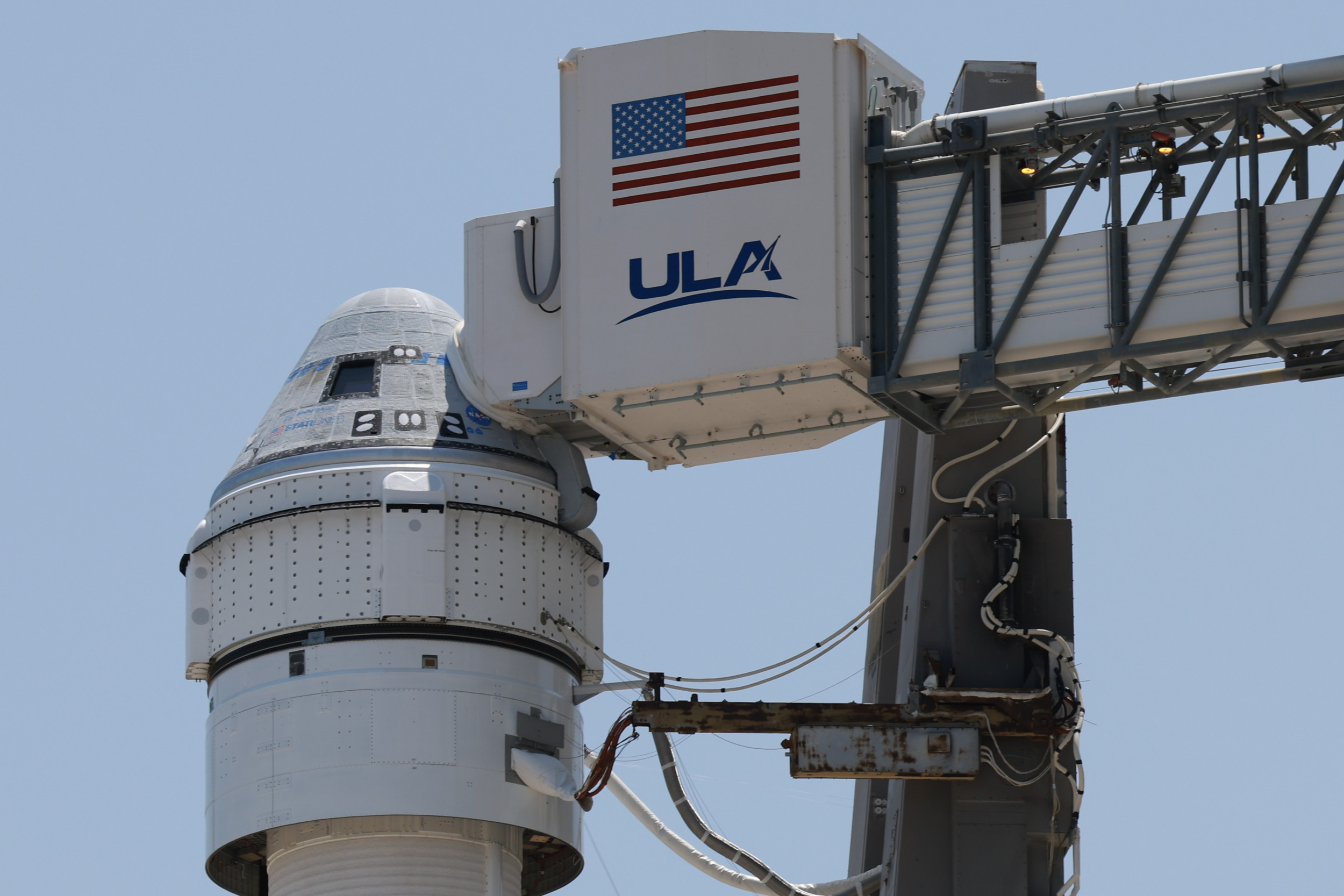- Some 49 percent of Americans said that they don't trust the U.S. government to tell the truth on the Chinese spy balloon.
- A large majority of respondents to a Newsweek survey are concerned about unidentified high-altitude flying objects in U.S. airspace.
- Increased awareness of mass surveillance has triggered justifiable concerns— and sometimes paranoia—among Americans, experts say.
Around half of Americans believe that the U.S. government can't be trusted to tell the truth about the alleged Chinese spy balloon and other high-altitude flying objects shot down in recent weeks, polling for Newsweek shows.
A majority of Americans surveyed by the U.K.-based global consulting firm Redfield & Wilton Strategies on behalf of Newsweek said they believe that the balloon shot down on February 4 was sent from China and was spying on the U.S.—and that the U.S. did well to destroy it.
On the other hand, they don't think that the government is telling them the whole truth about what was going on with the balloon—and the other three unidentified objects shot down over northern Canada, Alaska, and Lake Huron after that.

Only 13 percent of respondents were not concerned at all about the presence of unidentified flying objects above American airspace. Some 32 percent were extremely concerned, 34 percent were fairly concerned, and 21 percent were slightly concerned.
"I think people are living in an environment of heightened fear and uncertainty in general. The balloon is capturing people's attention because it's a tangible and physical object that we can focus our general sense of uncertainty on," Tara Behrend, professor of psychology at Purdue University, told Newsweek.
According to the survey, run on a sample of 1,500 eligible U.S. voters on February 19, 49 percent of Americans said that they don't trust the U.S. government to tell the truth on the Chinese spy balloon "and other similar objects flying over the United States that are being shot down," while 33 percent say they do. Eighteen percent don't know what to think about it.
Why Are Americans So Suspicious?
James A. Lewis, senior vice president of the Center for Strategic and International Studies (CSIS), told Newsweek that the number of people who don't trust the government on the Chinese spy balloon and similar flying objects "is actually consistent with the percentage of Americans who believe in flying saucers."
He said that the doubt felt by many Americans reflected that the story around the Chinese spy balloon was "fumbled" by the Department of Defense. "It's a grave threat but we let it drift across the continent? Government credibility took a real hit with the handling of COVID-19 and it still hasn't recovered," he said.
The respondents' concerns are not necessarily primarily about the Chinese spy balloon, which U.S. fighter jets shot down this month after it flew over U.S. airspace for about a week, sparking a diplomatic dispute between Washington and Beijing. The Chinese government claims the device was an errant civilian airship meant for observing weather conditions, and has condemned the Biden administration's decision to bring it down.
A majority of 53 percent of respondents believe the Chinese balloon was meant for spying, and 64 percent support the U.S. and Canada's decision to shoot down that balloon and others.
Instead, respondents seem to be most concerned about the origin of the other balloons that were shot down after the Chinese one, and what the U.S. knew about them. Some 55 percent said they find it "plausible" that the U.S. government did know about the high-altitude balloons before civilians spotted the first one last week. Forty-five percent believe that the other three balloons shot down after February 4 also came from China.
The U.S. government has not specified the origin of the other three balloons, but national security council spokesperson John Kirby said that they were all ordinary devices used for research, weather observations or commercial purposes.
Fear Of Surveillance
Behrend said that the spotting and shooting down of the balloons in recent weeks has reminded Americans of "all kinds of surveillance that are going on all the time"—including phone data, buying habits, social media and workplace information that are captured and marketed every day as they go about their daily lives.
"An incident like the balloon can remind people about all these kinds of surveillance that are going on all the time. So, I don't think it's fair to call it paranoia—it's an accurate concern for their privacy," she said.
While Behrend said that Americans are "quite justified to be concerned" about the way their data is collected and used, she said that it's also "justified to worry about the erosion of trust in our institutions that comes from bad actors attempting to influence us."
David Harper, professor of clinical psychology at the University of East London in the U.K., said that anxiety is generally exacerbated in the U.S. at the moment, with increased suspicion, polarization and geopolitical tensions amid Russia's invasion of Ukraine, competition with China, and reports of espionage by both countries.
"In addition, there has been increased concern about surveillance by the government in the wake of the Snowden revelations and by tech companies. 'Paranoia' is an easily understood way of referring to this anxiety and suspicion," he told Newsweek.
"In a post-Watergate age, the American public are much more skeptical of official accounts and this provides fertile ground for the proliferation of conspiracy theories following newsworthy incidents like the JFK assassination, the 9/11 attacks and, more recently, the 'spy balloon' incidents."
Suspicion of the government's official account of events is "likely to be increased since the knowledge the government has is often incomplete or ambiguous and it also changes over time as more information is gathered and as the situation changes."
Should Americans Really Be Concerned?
"In the modern world, we are often unsure how paranoid we should be," Harper said. "We know, for example, that security, intelligence and law enforcement agencies potentially have access to vast amounts of electronic and other information about us stored in databases should they wish to but they have limited resources and can't actively monitor everyone even if they wished to. Big Tech companies similarly have lots of information which is primarily used to get advertising revenue."
As a result, it's hard to know how concerned we should be about the balloons without more information, Harper said.
"Paranoia focuses on whether others' intentions are malign or benign. At the moment we don't know what the intentions of the balloon launchers are. A lot will depend on what information is shared from the debris of the first balloon shot down," he said.
Lewis said that while China is known to use spy satellites to gather information on the U.S., the country has not used spy balloons before. "Using a balloon would be a step back," he wrote in an article published on the CSIS. He believes the "most likely explanation" for the Chinese spy balloon was "an errant weather balloon that went astray."
The Biden administration has accused Beijing of operating a surveillance program that has targeted more than 40 countries. China denies it.
On Thursday last week, Biden said that his administration will update guidelines for encounters with similar unmanned objects flying through U.S. airspace, stating when the military should shoot them down.
"Make no mistake, if any object presents a threat to the safety and security of the American people, I will take it down," he said.
Uncommon Knowledge
Newsweek is committed to challenging conventional wisdom and finding connections in the search for common ground.
Newsweek is committed to challenging conventional wisdom and finding connections in the search for common ground.
About the writer
Giulia Carbonaro is a Newsweek Reporter based in London, U.K. Her focus is on U.S. and European politics, global affairs ... Read more
To read how Newsweek uses AI as a newsroom tool, Click here.






